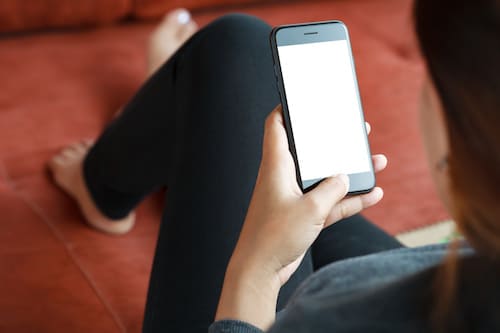April 05, 2019

I was on the subway recently when I saw an ad with a smiling man holding a smartphone. The text below his picture explained that he was so happy because he had used an app to improve his mood and anxiety. The ad implied that I too could be just as happy as him, if I download and use the app right now. The tagline was something similar to “happiness is just a few clicks away.”
In the following weeks, I asked several people I know with mental illness if they’d heard of this app. One person said she tried it but was frustrated when she discovered hidden costs. Another was upset when he tried to connect to a therapist through it but was told that people with schizophrenia were “too sick” for the app.
It is sadly true that stigma has entered the digital world. Among the top few apps in the search results for “schizophrenia” is a pong game played with pills instead of a ball. The difficulty levels range from “sane” to “schizophrenic.”
Ultimatley, I couldn’t find anyone who clicked their way to happiness with the app I saw advertised on the subway.
Many apps are quick to say they are inspired by evidence-based therapies like cognitive behavioral therapy or mindfulness therapies. But how well does the evidence from an in-person therapy session translate into a self-help smartphone app? Changing the mode of therapy delivery from a face-to-face session to a screen is going to change some aspects of the experience. For example, if you liked a book, will you always like the movie adaptation?
My team, the digital psychiatry division in the department of psychiatry at Harvard Medical School, recently participated in a research study looking at mental health apps. We found that while 64% of these apps make supportive claims about the evidence that inspired their app, only 1.4% have actually applied that evidence to their app and shared the results in a scientifically reviewed paper.
If only 1.4% of mental health apps have actually backed up their claims with evidence, then how can so many make such claims? The trick lies in how most mental health apps are regulated today. Buried deep in the terms and conditions of most apps, including therapy apps, is a statement that the app is not actually offering any medical or mental health services. Instead this mouse-print text notes the app is a self-help tool and therefore not subject to medical rules around clinical claims, privacy and confidentiality.
An example taken from a very popular meditation and mindfulness app states “any advice or other materials in the products are intended for general information purposes only.” Another from a different popular therapy app notes it is really a “self-help system designed to help you improve your own mental health and well-being.” For those seeking self-help, these apps may be useful tools. For those seeking more, these apps may be deceptive. The deception lies not only in the false claims in ads but also because the average American is unable to read the apps’ terms and conditions because the reading level requires a college education.
If considered as a tool rather than a treatment themselves, there is a bright side. When used in partnership with peer support, a clinician or any other type of treatment, these apps can be useful tools to help extend and boost the impact of that treatment. For example, our team explored how therapy apps could be used to offer extra support to those already in care. The apps people found most useful were not the most complex or fancy, but rather they were practical and easy to use. These apps helped people learn new skills and share their lived experiences with others. We are now starting a digital clinic to offer a combination of face-to-face care that is supplemented by apps. The goal is not to have the apps ever come between or replace care but rather to use the skills apps may teach or information they may collect (about sleep for example) to make the in-person therapy sessions more personalized, targeted and effective.
Perhaps one day in the future happiness will be just a few clicks away as that ad on the subway claimed. But we know from clinical research and scientific studies that at least today, these mental health apps cannot do that. And while many mental health apps available today are not useful, and some are even harmful and stigmatizing, some can be helpful tools if used the right way. The first step is to have an informed discussion between the person interested in using the app and their treatment team.
To learn more about shared, informed decision making and apps, please see a recent free webinar on the topic. It is available through the SMI Adviser website. This initiative is funded by the Substance Abuse and Mental Health Services Administration (SAMHSA) and administered by the American Psychiatric Association (APA).
John Torous, MD, MBI, is a physician who is dual board certified in psychiatry and clinical informatics. He directs the division of digital psychiatry in the department of psychiatry at Beth Israel Deaconess Medical Center, Harvard Medical School, and serves as technology expert adviser for the SMI Adviser initiative: https://smiadviser.org/
We’re always accepting submissions to the NAMI Blog! We feature the latest research, stories of recovery, ways to end stigma and strategies for living well with mental illness. Most importantly: We feature your voices.
Check out our Submission Guidelines for more information.
We’re always accepting submissions to the NAMI Blog! We feature the latest research, stories of recovery, ways to end stigma and strategies for living well with mental illness. Most importantly: We feature your voices.
LEARN MORENAMI HelpLine is available M-F, 10 a.m. – 10 p.m. ET. Call 800-950-6264,
text “NAMI” to 62640, or email. In a crisis, call or text 988 (24/7).